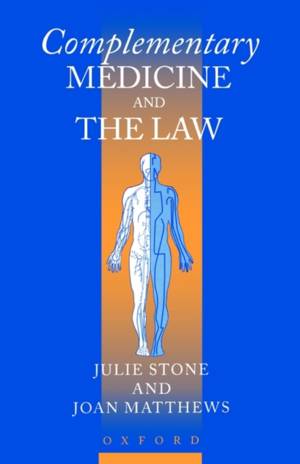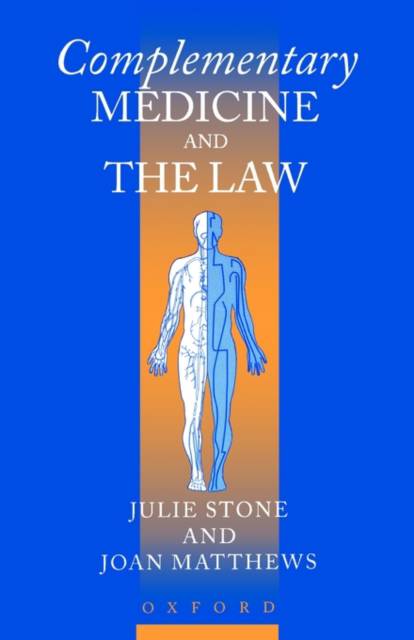
- Retrait gratuit dans votre magasin Club
- 7.000.000 titres dans notre catalogue
- Payer en toute sécurité
- Toujours un magasin près de chez vous
- Retrait gratuit dans votre magasin Club
- 7.000.0000 titres dans notre catalogue
- Payer en toute sécurité
- Toujours un magasin près de chez vous
148,45 €
+ 296 points
Description
The growth of complementary medicine over the past decade has been accompanied by calls for greater regulation and for the most part it has been assumed that the regulation of orthodox medicine offers a suitable model for complementary medicine. The result has been confusion over the purpose and effects of regulation and the obscuring of critical issues which deserve far greater public exposure. This book unravels the debates and analyses the benefits and drawbacks of regulation in this area. The book has two aims. First of all it examines in some detail the way in which the law presently affects the practice of complementary medicine. The second aim is to examine all the arguments for and against greater regulation of complementary medicine. In fulfilling the second aim it challenges the notion that the legal and regulatory mechanisms which govern orthodox medicine constitute an appropriate model for the regulation of most complementary therapies. The patient-centred, holistic approach central to the theory and practice of many complementary therapies presents a unique problem for the law: the highly individualized intuitive, whole person approach of complementary medicine is not amenable to the quantification, measurability and certainty required by the law. The authors argue that only by implementing a more dynamic form of ethics-directed regulation can patients be protected and the unique contribution that complementary medicine has to make properly realized.
Spécifications
Parties prenantes
- Auteur(s) :
- Editeur:
Contenu
- Nombre de pages :
- 328
- Langue:
- Anglais
Caractéristiques
- EAN:
- 9780198259718
- Date de parution :
- 12-09-96
- Format:
- Livre broché
- Format numérique:
- Trade paperback (VS)
- Dimensions :
- 139 mm x 216 mm
- Poids :
- 439 g

Les avis
Nous publions uniquement les avis qui respectent les conditions requises. Consultez nos conditions pour les avis.






